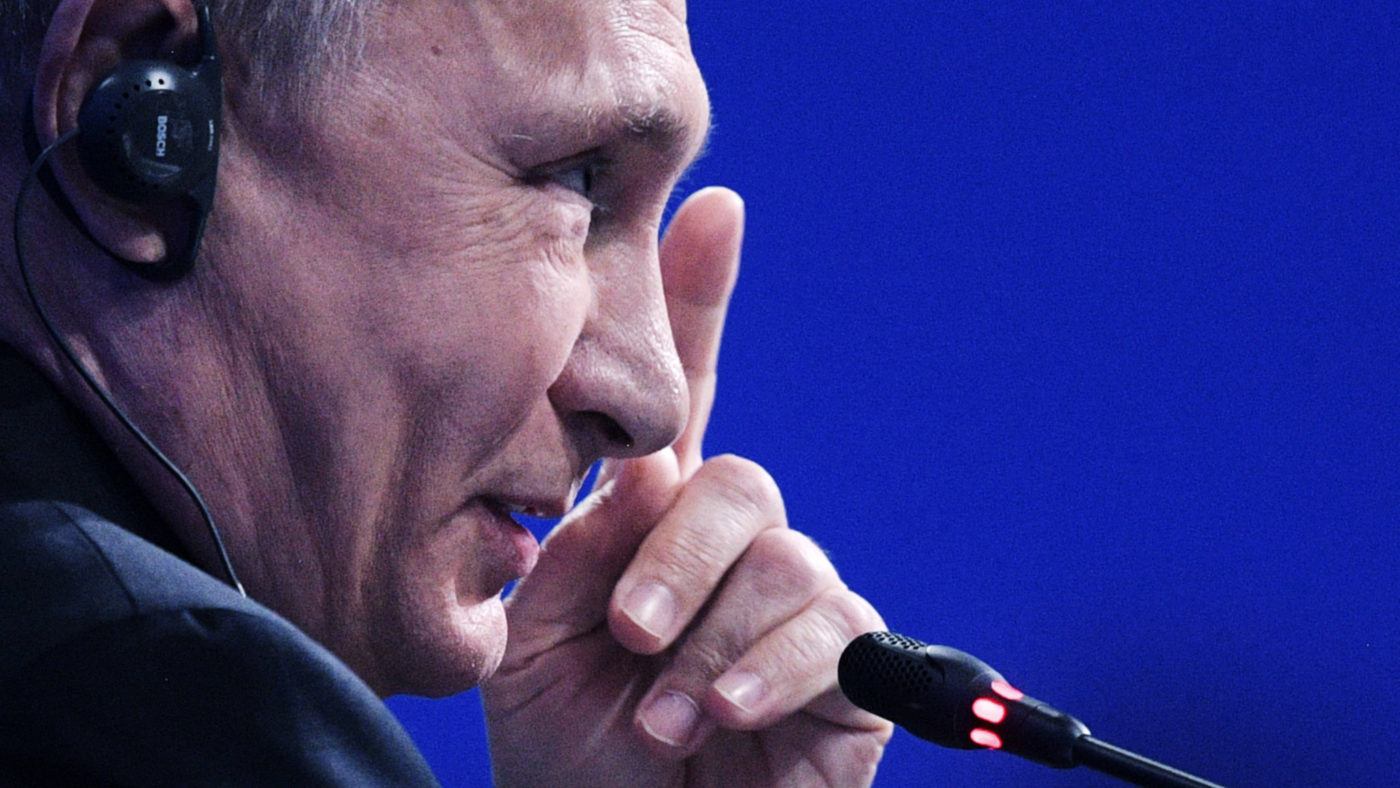After the 2008 Georgian War, and then the annexation of Crimea in 2014, Moscow realised the limits of its hard power. The sovereign and independent countries that Putin had considered to be part of Russia’s “legitimate sphere of influence” were slipping away by building closer ties with Europe and the US.
This was in clear opposition with the Kremlin’s geopolitical interests. As a result, Russia declared an information war on the post-Soviet region, but also towards the West more generally.
Back in 2007, in his Munich Speech, Putin had underlined the Kremlin’s refusal to accept the current geopolitical order and now uses information as a weapon to achieve its foreign policy goals. The Georgian example is a good illustration of the mechanisms used by the Kremlin in Central and Eastern Europe.
As Edward Lucas and Peter Pomerantsev have described, the aim of Russian propaganda is to confuse and distract rather than persuade. It does so by manipulating salient issues of identity, human rights and beliefs to undermine the West; it attacks Western values on moral grounds, condemns Western domination and discredits the idea of liberal democracy. This is nothing new. The origins of this ‘warfare’ go back to Soviet times and to the Cold War. However, the scope and the range have grown: technology and globalisation have enabled Kremlin to expand its influence further and faster. In the digital age disinformation has never been easier.
After the Rose Revolution in 2003, there was a clear shift towards the West in Georgia as Mikheil Saakashvili and his allies embarked on a campaign of democratisation. Under the United National Movement, Russian rhetoric was marginalised as Georgia became a reliable western partner.
Today, the situation is different. A 2017 report measuring Russia’s ability to sway other countries’ information spaces confirms that Georgia ranks second on the Kremlin Influence Index. Russia’s information war is working: public attitudes there have changed and anti-western sentiment is growing.
The same report underlines the main narratives advanced in Central and Eastern Europe. In Ukraine, where the population is more or less united under a pro-western Kiev government, propaganda is targeted to restore Moscow’s influence. In Hungary and the Czech Republic, which are members of the European Union, it mostly aims to discredit the idea of liberal democracy and present Russia as the guarantor of peace and stability through local political and media actors. This is a hybrid war, one using propaganda, influence and disinformation to serve one purpose: the destabilisation of the enemy.
The Kremlin pours an immense amount of resources into its campaign. It invests in media outlets, NGOs, political parties, radical Right actors but also in the Orthodox Church. Those agents it uses tend to fall into two clear groups: those with strong ethno-nationalistic interests and those which will openly promote the benefits of having a Russian ally. Each opposes partnership with the West and notably, America.
Moscow, for example, spends millions on Russia Today (RT) – operating in 100 countries, it reaches approximately 700 million households. According to the 2017 NDI poll conducted in Georgia, the most watched non-Georgian TV channels were Russian. However, evidence suggests that in Georgia the spread of fake news and propaganda is mostly done with the help of local media outlets which are in line with the Russian narratives a result of business and political allegiances.
The story told is one of the Kremlin, having adopted moral conservatism, being the protector of tradition, religion and morality, fighting Western expansion. As the IDFI report underlines, one of the characteristics of Russian propaganda is its denial of objective reality: it distorts facts in order to foster confusion, hatred and conflict. Thus, in Georgia, you might hear statements such as “The EU makes us adopt a school subject called “Me and Society” that will establish homosexuality and perverse lifestyle”, or “The British Company Human Leather produces clothes from human skin”, or even better: “An adult alligator swallowed an employee of the zoo in Naples when he tried to rape a new-born alligator.”
Politicians, media outlets, NGOs and members of the clergy openly discuss these “issues” on propagandist platforms as potential threats emerging from European integration. Other agents advocate strategic partnerships with Russia, emphasising historic cultural and religious ties with Georgia. They also insinuate that the West, especially the US uses Georgia as bait and is not a reliable partner and has no intention of helping Georgia recover the territories occupied by Russia.
It’s a heady brew: Soviet nostalgia and the fear of the “unknown” and of the freedom brought by democracy and modernisation, is invoked. This, combined with strategic misinformation enables the Kremlin to play with people’s emotions/fears and establish an “alternative” narrative. It’s an extremely effective way to hamper integration in Euro-Atlantic structures, makes the population question the foundations of democracy, liberalism and identity and is a threat to Georgian and regional security.
So what can be done? Certainly, shutting down media outlets and restricting free speech is not the answer – indeed this is what Russia has done in the occupied territories. Instead, Russian myths must be shot down with the truth – through vigorous awareness campaigns. Measures have been taken, but given Georgia’s swing back towards Russia, it hasn’t been enough.
Russia isn’t yet winning in Georgia. Western soft power still holds sway. But the West cannot afford to be complacent. Russian propaganda is far from inefficient; the Kremlin is waging a serious, calculated and dangerous campaign. It needs to be properly addressed by local actors and the West lest it gains the upper hand.


